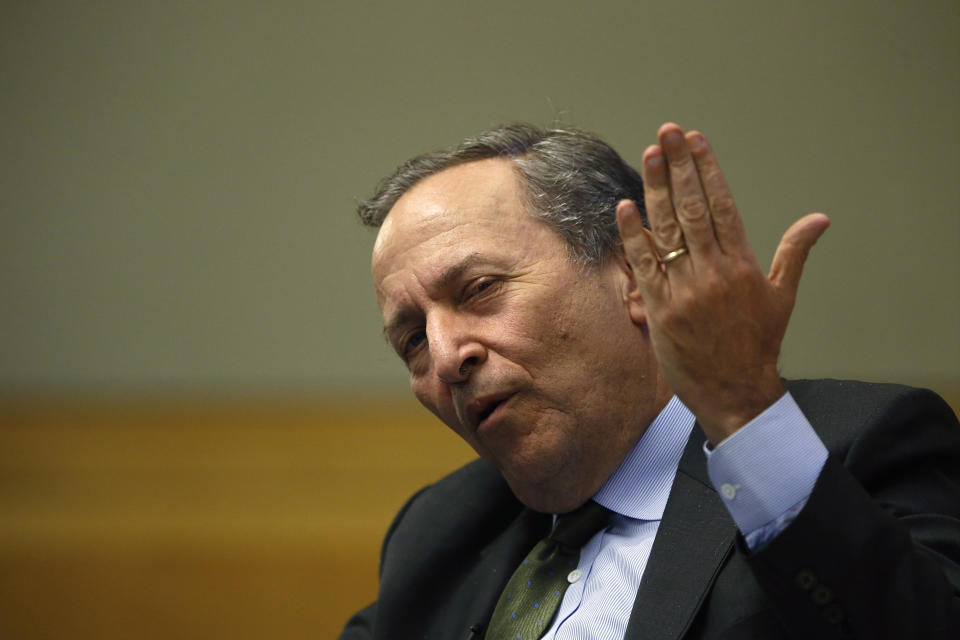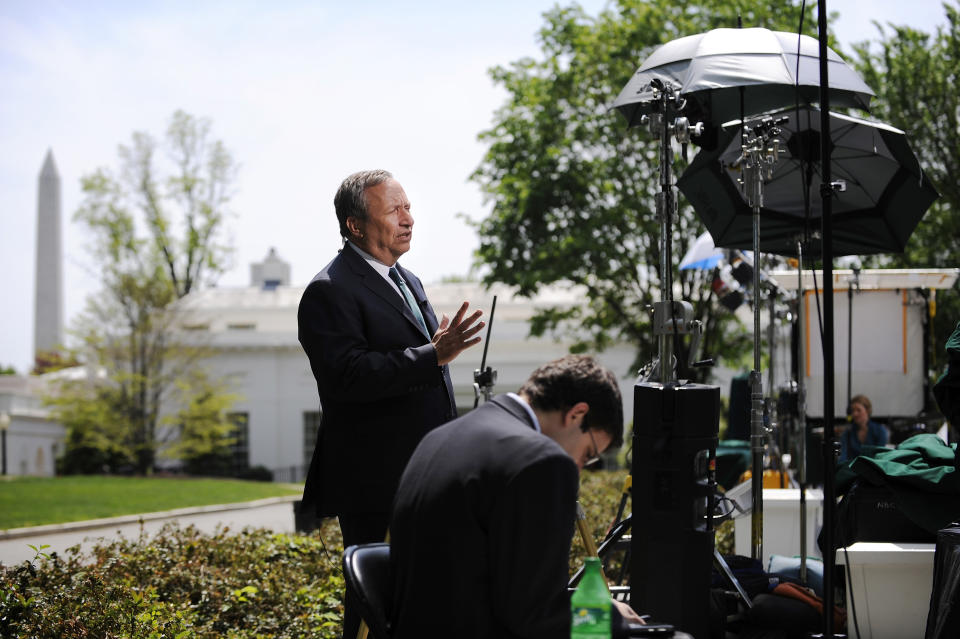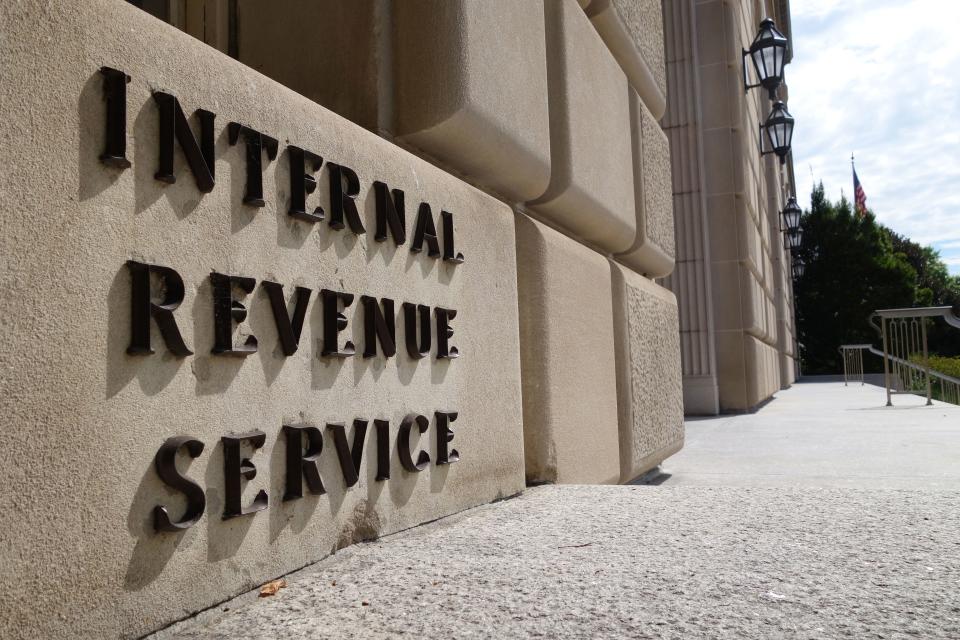Larry Summers' tax advice for Biden: Collect on the $7 trillion owed by 'the richest taxpayers'
- Oops!Something went wrong.Please try again later.
- Oops!Something went wrong.Please try again later.
During the presidential campaign, Joe Biden campaigned on a series of tax increases aimed at corporations and the richest Americans to help pay for his ambitious agenda.
But, depending on what happens in Georgia, Democrats face an uphill battle to take control of the Senate, and Biden’s ideas for tax hikes might be dead on arrival if Sen. Mitch McConnell (R., Ky.) is still in control as Senate Majority Leader on Jan. 20.
Former Treasury Secretary Lawrence Summers has another idea to target “the richest taxpayers,” specifically those able to dodge the IRS.
Biden’s tax plan “is not likely to be legislated in this political environment,” Summer told Yahoo Finance, but going after tax cheats can help raise at least some of the money needed to fund things like Biden’s “Build Back Better” plan.

“My most important recommendation in the tax area would be we could collect $1 trillion over the next decade, at least from better enforcement on the $7 trillion that is owed but not paid, with most of that coming from the richest taxpayers,” Summers said.
Whether Biden is able to implement his agenda, the money would be sorely needed as the U.S. faces record deficits for years to come after the $3 trillion spent on pandemic aid in 2020.
Summers served under both President Clinton and President Obama and was the president of Harvard University from 2001-2006.
Billions of dollars in unpaid taxes
Policymakers have been pointing to the lack of enforcement muscle at the IRS for years.
A recent Congressional Budget Office report contained the remarkable prediction that any money put into the IRS would come back to the U.S. Treasury three times over. “Increasing the IRS’s funding for examinations and collections by $20 billion over 10 years would boost revenues by $61 billion,” the report states.

As it stands now, many high-income earners are simply not filing taxes and getting away with it. A report from the U.S. Treasury Inspector General for Tax Administration identified nearly 880,000 “high-income nonfilers,” with estimated taxes due of $45.7 billion.
The IRS’s budget has been in decline since 2010. That year, the agency’s operating costs were just under $15 billion (in 2019 dollars) and that figure had fallen below $12 billion by last year. President Trump has recently sought to return the agency to 2010 funding levels.
Areas where ‘we can do better’
Summers said Biden should focus on things like restoring audit rates to previous levels, updating the technology at the IRS and changes in income reporting – these are “are all things where we can do better,” he said.
This week, two IRS officials said that the agency would be tracking down more suspected high-income tax avoiders as soon as the coronavirus pandemic passes. The IRS has reportedly been focused in the last year on identifying an estimated 9 million individuals who have not filed a tax return but the pandemic has hampered its ability to actually contact the suspected tax avoiders.
Specifically, IRS agents are interested in individuals who earn at least $100,00 but have failed to file an income tax return.

William G. Gale, a tax policy researcher and senior fellow at the Brookings Institution, recently told Yahoo Finance that increasing audits is “critical” and added that even if the IRS simply telegraphs that increased audit rates are coming, “you would get more voluntary compliance.”
Other issues – like improving technology at the agency – might take more time. The Taxpayer First Act was passed in 2019 in part to help the agency modernize its technology, but observers expect that to be a long process.
Summers also authored a recent public memo addressed the the 78th Treasury Secretary of the United States, who has yet to be named, about the international policy challenges facing the next occupant of the seat that Summers filled during the Clinton administration.
Ben Werschkul is a writer and producer for Yahoo Finance in Washington, DC.
Read more:
IRS turns back to tax enforcement: ‘There’s a lot of money that’s not being paid’
‘There is no precedent’: Record-breaking U.S. deficits are coming
Biden's tax plan: Eyes on the 1% and corporations like Amazon
Read the latest financial and business news from Yahoo Finance
Follow Yahoo Finance on Twitter, Facebook, Instagram, Flipboard, LinkedIn, YouTube, and reddit.


